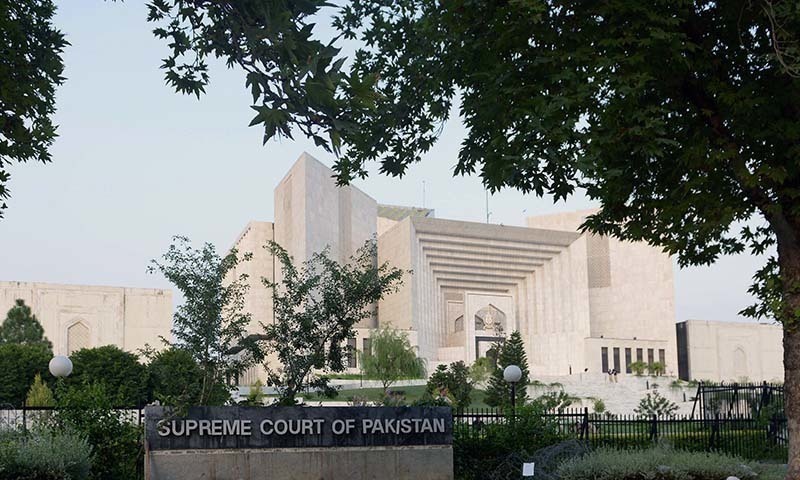ISLAMABAD: The Supreme Court was on Tuesday requested through a review petition to reconsider its earlier determination of holding the subject of the police force within the exclusive legislative domain of the provinces.
The petition moved by Azhar Ali Farooqi, through his counsel Mohammad Raheel Kamran Sheikh, has pleaded that the apex court reconsider its March 22, 2018, decision in which it was held that the Sindh Assembly was competent to enact the Sindh (Repeal of Police Order, 2002 and Revival of the Police Act, 1861) Act, 2011, by repealing the Police Order (Chief Executive Order), 2002.
The review petition highlights that the Police Order (Chief Executive Order), 2002, was promulgated as a federal law, with the petitioner making the case that the police — being part of the subject of criminal procedures — is a concurrent legislative subject specified in Article 142(b) of the Constitution. The petition further submits that even the continuance of the Police Order, 2002, after the 18th Constitution Amendment, was ensured by parliament in Article 270AA (2).
The review petition holds that by dismissing a plea for appeal [by the same petitioner], the SC failed to consider that the Sindh (Repeal of Police Order, 2002 and Revival of the Police Act, 1861) Act, 2011, purports to repeal a federal law, i.e the Police Order (Chief Executive Order 2002) to the extent of its application to Sindh.
The review petition pleads that under Article 142(b) of the Constitution, parliament and the provincial assemblies concurrently exercise legislative competence to frame laws with respect to criminal law, criminal procedures, and evidence. Further, the petition argues, the manner in which the force discharges its functions ought, as a matter of course, always be governed primarily through laws related to criminal procedures.
The SC, the review petition maintains, while deciding the matter on March 22, did not take into account the fact that the federal legislature has consistently regarded the establishment of the police force to be an essential part of the [legislative] entries relating to criminal law and criminal procedures. In this regard, it is manifest, it holds, that the federation has legislated for the establishment of several investigatory agencies that have been tasked with policing offences that either form part of the Federal Legislative List, or the now repealed Concurrent Legislative List. The petitioner’s plea provides the examples of the Federal Investigating Agency (FIA), the National Accountability Bureau (NAB) and the Anti-Narcotic Force (ANF), saying that these were established under the Federal Investigating Agency Act, 1974, the National Accountability Ordinance, 1999, and the Anti-Narcotic Force Act, 1997, respectively. Any restrictive interpretation of the subjects of criminal law and criminal procedures enumerated in Article 142(b) of the Constitution to exclude the police force would have the effect of depriving the federation of legislative competence to provide the law enforcement agencies.
The review petition argues that the SC, through its March 22 order, did not consider that the federal legislature itself defined the subject of the police in Section 2 of the Anti-Narcotic Force Act, 1997, to mean a force constituted by the federal government or provincial government under the Police Act, 1861, thereby treating the subject as concurrently empowering both. It claims that the apex court also did not consider that the effect of upholding the verdict of the Sindh High Court is that the Police Service of Pakistan, which is part of the All Pakistan Service (APS) in terms of Article 240 of the Constitution and a service common to the federation and the provinces, would not only render it ultra vires of the Constitution but would also exclude it from being part of the APS outside the scope of the federation (under Article 148(3)) of the Constitution.
Article 148(3) obligates the federal government to protect every province against external aggression and internal disturbance, and to ensure that the governance of every province is in accordance with the provisions of the Constitution.



